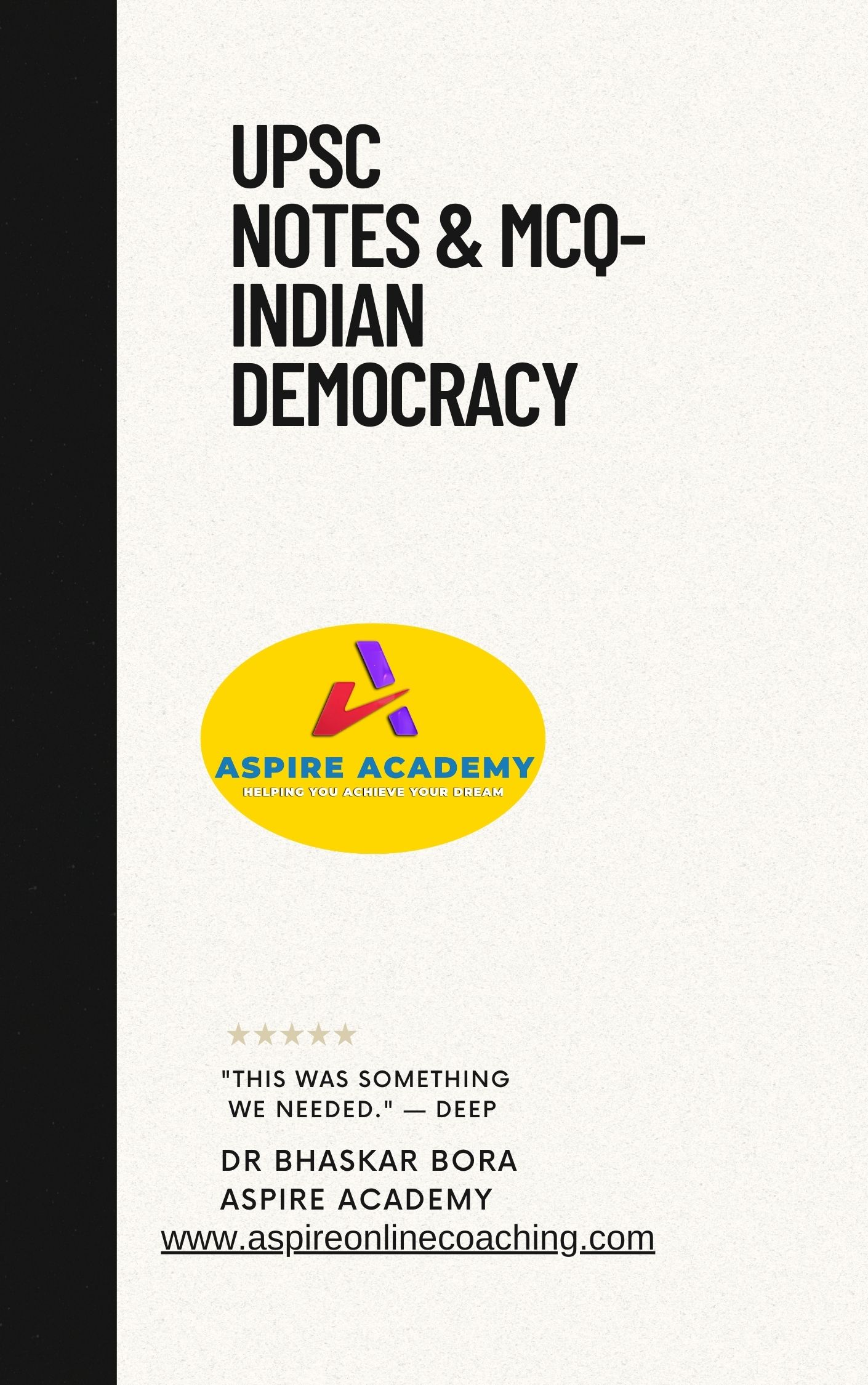Compiled by Dr Bhaskar Bora
Link to full notes https://acrobat.adobe.com/id/urn:aaid:sc:EU:38ccc4fb-c8bf-4fcb-afcb-af957c24a3e2
Indian democracy is a unique blend of a parliamentary system with a federal structure. It is characterized by free and fair elections, multi-party politics, an independent judiciary, and a free press.
The Constitution of India, which came into effect on January 26, 1950, is the foundational document of India’s democracy. It guarantees fundamental rights such as freedom of speech, expression, religion, and equality before the law to all Indian citizens.
The parliament is the primary legislative body of India. It consists of the President, Rajya Sabha (upper house), and Lok Sabha (lower house). The Prime Minister, who is the leader of the majority party in Lok Sabha, heads the government. The opposition party has a crucial role in keeping a check on the government’s actions.
India’s federal structure divides power between the central government and the state governments. The Constitution delineates the powers and responsibilities of both the central and state governments. State governments control several areas, including agriculture, education, public health, and law and order.
The judiciary is independent and impartial, and it serves as the guardian of the Constitution. It consists of the Supreme Court, High Courts, and District Courts. The Supreme Court has the power of judicial review, which enables it to strike down any law or government action that violates the fundamental rights guaranteed by the Constitution.
A free and independent press is a crucial part of India’s democracy. It plays a vital role in keeping citizens informed about government policies and actions, exposing corruption, and holding those in power accountable.
India’s democracy is not without its challenges. Corruption, communalism, casteism, and poverty are significant roadblocks that India needs to overcome to strengthen its democracy. However, India’s vibrant civil society, diverse media, and politically aware citizens have ensured its democracy has survived and thrived for over seven decades.
Link to full notes https://acrobat.adobe.com/id/urn:aaid:sc:EU:38ccc4fb-c8bf-4fcb-afcb-af957c24a3e2
Keep following for more notes to cover the rest of the syllabus. This website will be updated regularly.



